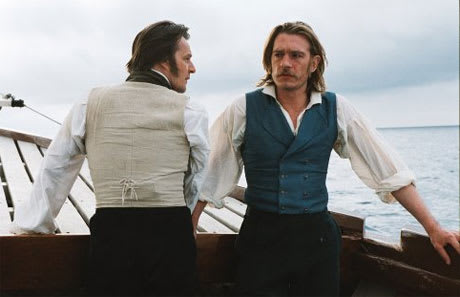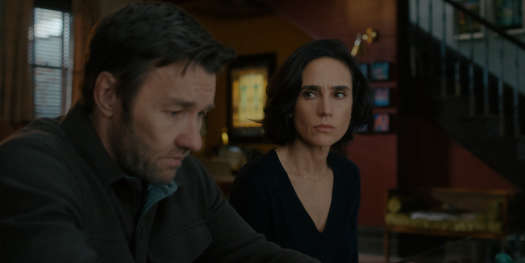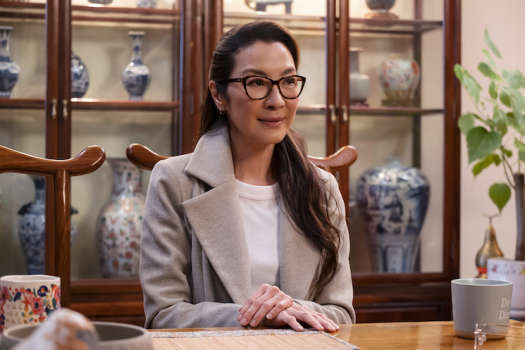Balzacs The Duchess of Langeais is a 19th-century realist novel, and as such it explains itself as it goes, stuffs your head full of directives and gives you no choice in how to interpret its narrative. That has its rewards, but they are different from the ones provided by Jacques Rivettes adaptation, which takes a mostly unremarkable tale of failed romance and makes it impenetrably strange while seeming to do nothing at all.
The novel and film both deal with the affair of military officer Armand de Montriveau (Guillaume Depardieu) and the titular duchess Antoinette de Langeais (Jeanne Balibar), a slightly awkward proposition considering her marriage to nobility. The initial courtship features the hangdog Armand being teased and tormented by his would-be paramour. This leads him to pull a brutal stunt in order to turn the tables of power and subdue his object of desire.
That he goes too far goes without saying. This is mostly people in rooms talking, talking, talking and in anyone elses hands it would have been either gentle and snappy or dull and stodgy. But Rivette has a genius for taking the most casual of situations and making them seem like theyre playing on the planet Mars.
Here, the push-pull of attraction and desire is revealed for the humiliating, awkward thing it is, and if Depardieu is frequently comical in his dogged commitment to looking stunned, it only enhances the what-the-hell? ambiance of the film in general and the subject in particular.
To be sure, this is minor Rivette, and probably wont appeal to neophytes unfamiliar with his masterpieces, but the directors ardent admirers will find much to enjoy in his wilfully bizarre reading of a straight-ahead classic.
(IFC)The novel and film both deal with the affair of military officer Armand de Montriveau (Guillaume Depardieu) and the titular duchess Antoinette de Langeais (Jeanne Balibar), a slightly awkward proposition considering her marriage to nobility. The initial courtship features the hangdog Armand being teased and tormented by his would-be paramour. This leads him to pull a brutal stunt in order to turn the tables of power and subdue his object of desire.
That he goes too far goes without saying. This is mostly people in rooms talking, talking, talking and in anyone elses hands it would have been either gentle and snappy or dull and stodgy. But Rivette has a genius for taking the most casual of situations and making them seem like theyre playing on the planet Mars.
Here, the push-pull of attraction and desire is revealed for the humiliating, awkward thing it is, and if Depardieu is frequently comical in his dogged commitment to looking stunned, it only enhances the what-the-hell? ambiance of the film in general and the subject in particular.
To be sure, this is minor Rivette, and probably wont appeal to neophytes unfamiliar with his masterpieces, but the directors ardent admirers will find much to enjoy in his wilfully bizarre reading of a straight-ahead classic.




